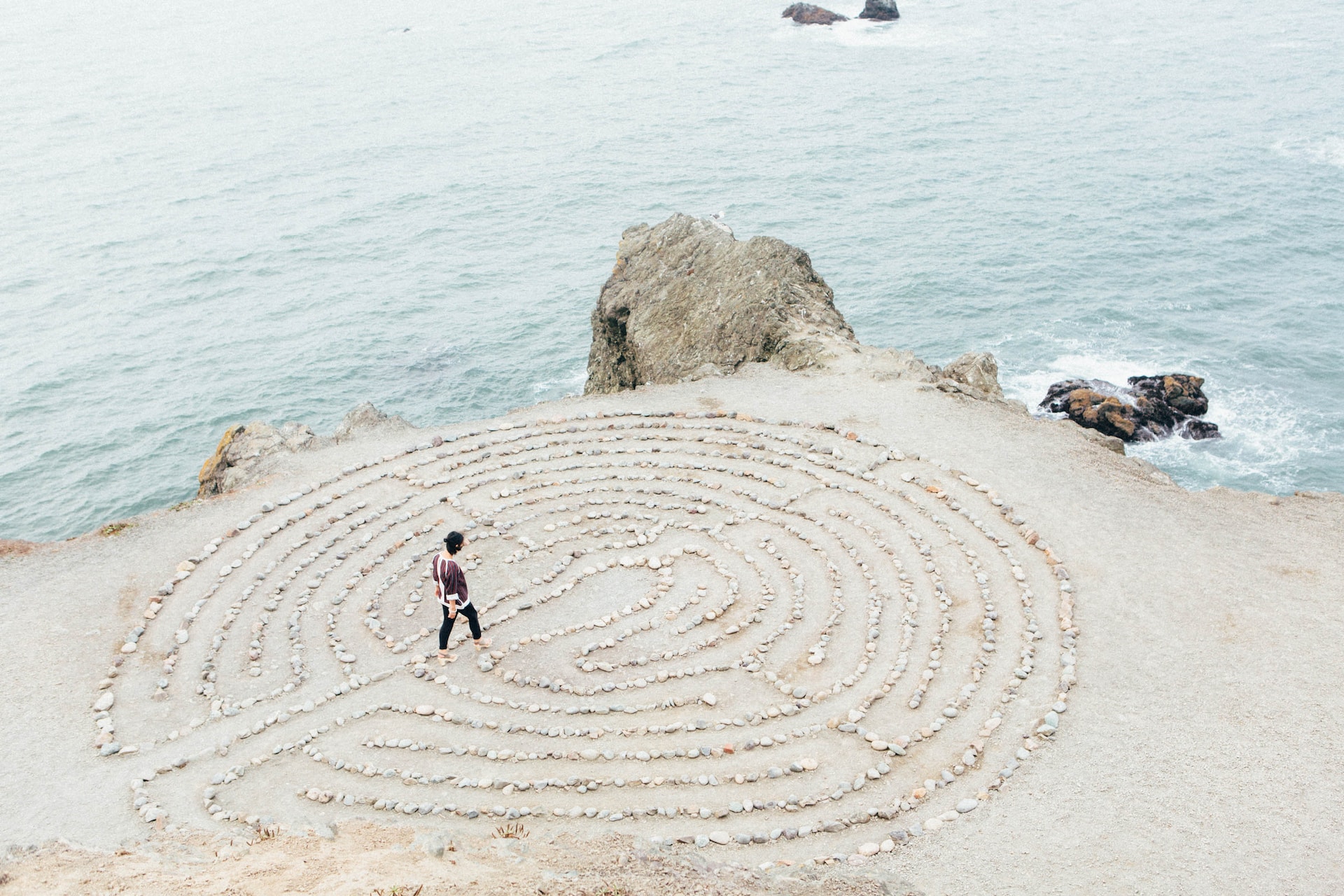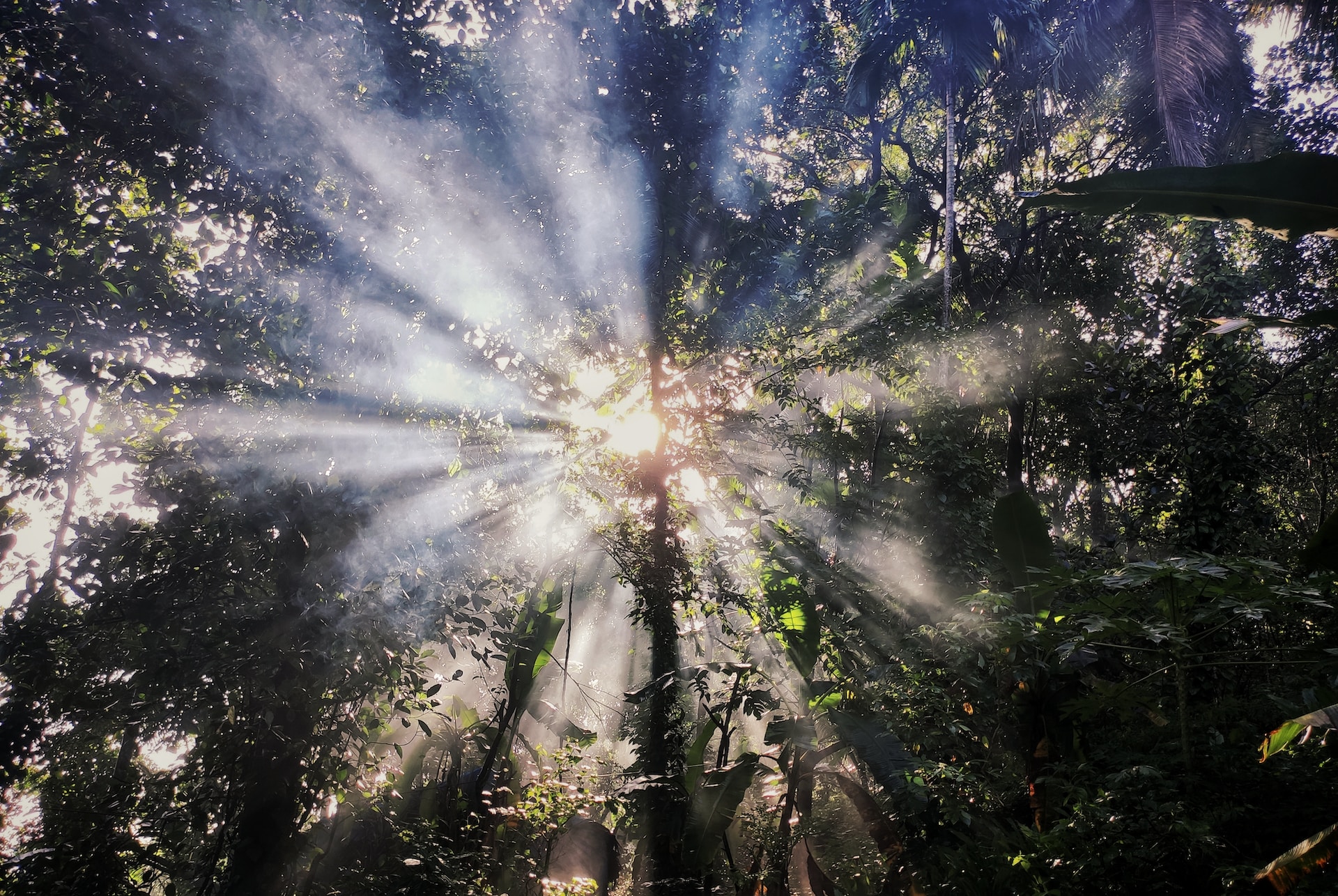Spiritual Journey - Exploring The Depths Of Consciousness [2024 Guide]
Your spiritual journey can lead to profound discoveries about consciousness. Explore techniques and practices that help you navigate and understand deeper levels of awareness.
Author:Suleman ShahReviewer:Han JuAug 18, 202424.8K Shares954.2K Views

As humans, we all experience consciousness in some form. But have you ever stopped to think about the different levels of consciousness and how they impact your spiritual journey?
Exploring consciousness can be a powerful tool for spiritual growth and can lead to profound insights and experiences.
In this article, we'll delve into the depths of consciousness and discover techniques for exploring this fascinating realm.
The Basics Of Consciousness
Consciousness is a fundamental aspect of our existence. It is what allows us to be aware of our thoughts, feelings, and surroundings. The study of consciousness has fascinated philosophers, scientists, and spiritual practitioners for centuries, yet it remains a mysterious and elusive topic.
At its most basic level, consciousness refers to the state of being awake and aware. It is the awareness of our thoughts, emotions, and sensory experiences, such as the feeling of the sun on our skin or the taste of food in our mouth. Consciousness can be divided into different levels, ranging from basic wakefulness to the deeper levels of subconsciousness and unconsciousness.
Perception and attention are two important factors that play a role in consciousness. Perception refers to the process by which we interpret and organize sensory information. Attention refers to the ability to focus our consciousness on specific stimuli or tasks.
In addition to perception and attention, there are other factors that can influence consciousness. For example, emotions can greatly impact our level of consciousness. Strong emotions such as fear, anger, or joy can alter our perception of reality and change our state of consciousness.
The study of consciousness has been the subject of much debate and speculation over the years. Some philosophers and scientists argue that consciousness is a purely biological phenomenon, a byproduct of brain activity. Othersbelieve that consciousness is a fundamental aspect of the universe, existing independent of physical matter.
The study of altered states of consciousness, such as those induced by meditation, psychedelics, or hypnosis, has shed some light on the nature of consciousness. Studies have shown that certain techniques, such as meditation or breathwork, can alter brain activity and lead to changes in consciousness. Similarly, studies of psychedelic substances have shown that they can induce altered states of consciousness that can lead to profound experiences and insights.
Despite the progress made in the study of consciousness, much remains unknown. The nature of consciousness is still a mystery, and many questions remain unanswered. However, by continuing to study consciousness and explore altered states of consciousness, we may one day unravel the mysteries of this fundamental aspect of our existence.
Techniques For Exploring Consciousness
There are many techniques for exploring consciousness, ranging from ancient spiritual practicesto modern scientific methods. These techniques can be used to expand our awareness, deepen our understanding of ourselves, and explore the nature of reality. Here are some of the most commonly used techniques for exploring consciousness:
- Meditation:Meditation is a practice that involves focusing your attention on a particular object, such as your breath or a mantra. Through this process, you can train your mind to become more focused and relaxed, which can lead to deeper states of consciousness.
- Breathwork:Breathwork involves the use of specific breathing techniques to induce altered states of consciousness. These techniques can be used to increase energy, reduce stress, and expand awareness.
- Yoga:Yoga is a practice that combines physical postures with breathing exercises and meditation. It can help to balance the body and mind, leading to increased awareness and a deeper sense of connection to the world around us.
- Psychedelics:Psychedelic substances, such as LSD or psilocybin mushrooms, have been used for thousands of years to induce altered states of consciousness. These substances can lead to profound experiences and insights, but should only be used in a safe and controlled environment under the guidance of an experienced practitioner.
- Hypnosis:Hypnosis involves inducing a trance-like state in which the conscious mind is bypassed and the subconscious mind is more accessible. This technique can be used to explore deep-seated beliefs and emotions that may be impacting your life.
- Lucid dreaming:Lucid dreaming is the practice of becoming aware that you are dreaming while still in the dream state. This can allow you to consciously explore and manipulate your dreams, leading to greater self-awareness and insight.
- Sensory deprivation:Sensory deprivation involves removing external stimuli, such as light or sound, to induce altered states of consciousness. This technique can be used to explore the deeper aspects of the mind and gain insight into the nature of reality.
These techniques can be powerful tools for exploring consciousness, but they should always be approached with caution and respect. It is important to use them in a safe and controlled environment, under the guidance of an experienced practitioner. With the right approach and mindset, these techniques can help you to expand your awareness, deepen your understanding of yourself, and unlock the mysteries of consciousness.
The Benefits Of Exploring Consciousness
Exploring consciousness can have many benefits, both for our personal growth and for our understanding of the world around us. Here are some of the key benefits of exploring consciousness:
- Increased self-awareness:By exploring consciousness, we can gain a deeper understanding of ourselves, our thoughts, emotions, and behaviors. This increased self-awareness can help us to make positive changes in our lives, improve our relationships, and achieve greater fulfillment and happiness.
- Enhanced creativity:Exploring consciousness can help us to tap into our creative potential by opening up new ways of thinking and seeing the world. By accessing deeper states of consciousness, we can access new insights and ideas that we might not have been able to see before.
- Greater empathy and compassion:By exploring consciousness, we can develop a greater sense of empathy and compassion for others. By understanding our own thoughts and emotions, we can develop a deeper understanding of the experiences and perspectives of those around us.
- Improved mental and physical health:Many techniques for exploring consciousness, such as meditation, breathwork, and yoga, have been shown to have numerous health benefits. These practices can reduce stress and anxiety, improve sleep, lower blood pressure, and boost the immune system.
- Greater sense of purpose and meaning:By exploring consciousness, we can gain a deeper sense of purpose and meaning in our lives. By connecting with something larger than ourselves, whether it be a spiritual belief or a sense of interconnectedness with the universe, we can feel a greater sense of purpose and direction in our lives.
- Enhanced spiritual growth:For many people, exploring consciousness is a way to connect with something larger than themselves and to deepen their spiritual practice. By accessing deeper states of consciousness, we can gain new insights into the nature of reality and our place in it, leading to greater spiritual growth and understanding.
Exploring consciousness can have many benefits for our personal growth, our relationships, and our understanding of the world around us. By using techniques such as meditation, breathwork, yoga, or psychedelics, we can access deeper states of consciousness and unlock new insights and perspectives that can help us to live happier, more fulfilling lives.
Challenges And Risks Of Exploring Consciousness
While exploring consciousness can have many benefits, it is important to recognize that there are also potential challenges and risks involved. Here are some of the main challenges and risks of exploring consciousness:
- Intense emotions:Exploring consciousness can bring up intense emotions and experiences, which can be overwhelming and difficult to process. This can include feelings of fear, anxiety, or even euphoria. It is important to approach these experiences with caution and to have support from a trained practitioner or therapist.
- Psychotic episodes:Some methods of exploring consciousness, such as using psychedelics or sensory deprivation, can increase the risk of experiencing a psychotic episode. This can include delusions, hallucinations, and disordered thinking. It is important to use these techniques in a safe and controlled environment, under the guidance of an experienced practitioner.
- Negative experiences:While exploring consciousness can lead to profound insights and positive experiences, it is also possible to have negative experiences, such as feeling lost or disconnected. It is important to be prepared for the possibility of negative experiences and to have support in place if they occur.
- Addiction:Some methods of exploring consciousness, such as using psychedelics, can be addictive and lead to dependence. It is important to use these techniques responsibly and to avoid using them as a way to escape or avoid dealing with underlying issues.
- Legal risks:Some methods of exploring consciousness, such as using psychedelics, are illegal in many parts of the world. It is important to be aware of the legal risks and to use these techniques only in a safe and legal environment.
- Cultural appropriation:Many methods of exploring consciousness, such as using indigenous plant medicines, have cultural and spiritual significance to certain communities. It is important to approach these techniques with respect and to avoid appropriating or exploiting the traditions of other cultures.
While exploring consciousness can have many benefits, it is important to be aware of the potential challenges and risks involved. By approaching these techniques with caution and respect, and by seeking guidance from experienced practitioners, we can safely and responsibly explore the depths of consciousness and unlock new insights and perspectives on ourselves and the world around us.
People Also Ask
What Are Some Common Spiritual Practices?
Some common spiritual practices include meditation, prayer, yoga, mindfulness, and journaling.
How Long Does A Spiritual Journey Typically Take?
The length of a spiritual journey can vary depending on the individual and their goals. Some people may have a profound spiritual experience in a single moment, while others may spend years or even their entire lives exploring their spirituality.
Can Anyone Embark On A Spiritual Journey?
Yes, anyone can embark on a spiritual journey, regardless of their religious or spiritual beliefs. It is a personal process of growth and exploration that is open to all.
Conclusion
Exploring the depths of consciousness can be a powerful tool for spiritual growth and self-discovery. By understanding the basics of consciousness and practicing techniques such as meditation or breathwork, we can gain new insights and experiences that can lead to profound personal transformation.
However, it's important to approach exploring consciousness with caution and to seek out guidance and support from experienced practitioners. Ultimately, by integrating these experiences into our daily lives, we can achieve greater peace, joy, and fulfillment on our spiritual journey.

Suleman Shah
Author
Suleman Shah is a researcher and freelance writer. As a researcher, he has worked with MNS University of Agriculture, Multan (Pakistan) and Texas A & M University (USA). He regularly writes science articles and blogs for science news website immersse.com and open access publishers OA Publishing London and Scientific Times. He loves to keep himself updated on scientific developments and convert these developments into everyday language to update the readers about the developments in the scientific era. His primary research focus is Plant sciences, and he contributed to this field by publishing his research in scientific journals and presenting his work at many Conferences.
Shah graduated from the University of Agriculture Faisalabad (Pakistan) and started his professional carrier with Jaffer Agro Services and later with the Agriculture Department of the Government of Pakistan. His research interest compelled and attracted him to proceed with his carrier in Plant sciences research. So, he started his Ph.D. in Soil Science at MNS University of Agriculture Multan (Pakistan). Later, he started working as a visiting scholar with Texas A&M University (USA).
Shah’s experience with big Open Excess publishers like Springers, Frontiers, MDPI, etc., testified to his belief in Open Access as a barrier-removing mechanism between researchers and the readers of their research. Shah believes that Open Access is revolutionizing the publication process and benefitting research in all fields.

Han Ju
Reviewer
Hello! I'm Han Ju, the heart behind World Wide Journals. My life is a unique tapestry woven from the threads of news, spirituality, and science, enriched by melodies from my guitar. Raised amidst tales of the ancient and the arcane, I developed a keen eye for the stories that truly matter. Through my work, I seek to bridge the seen with the unseen, marrying the rigor of science with the depth of spirituality.
Each article at World Wide Journals is a piece of this ongoing quest, blending analysis with personal reflection. Whether exploring quantum frontiers or strumming chords under the stars, my aim is to inspire and provoke thought, inviting you into a world where every discovery is a note in the grand symphony of existence.
Welcome aboard this journey of insight and exploration, where curiosity leads and music guides.
Latest Articles
Popular Articles


